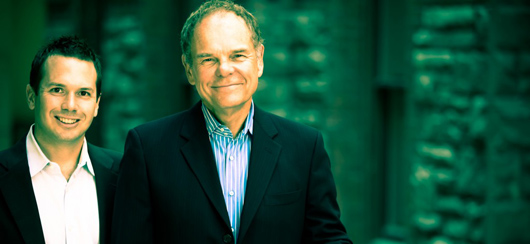
Excerpt from ‘Macrowikinomics’ on transformative social change
 This Sunday, 10/10/10, is Macrowikinomics Discovery Day, the first global networked event that brings together innovation and community groups from across sectors to celebrate openness, collaboration and the web. Don’t you love it?
This Sunday, 10/10/10, is Macrowikinomics Discovery Day, the first global networked event that brings together innovation and community groups from across sectors to celebrate openness, collaboration and the web. Don’t you love it?
Macrowikinomics: Rebooting Business and the World — which just hit bookstores last week — is the social innovation follow-up to the bestselling Wikinomics: How Mass Collaboration Changes Everything, by Don Tapscott and Anthony D. Williams. The folks at MacroWikinomics reached out to bring together global and local communities captured in the book, including Meetup.com, NetSquared, 350.org, Mozilla Drumbeat, Discovery Channel and other organizations centered on technology, media, environment, energy, business and finance. The book devotes 60 pages to nonprofit and government innovation, including chapters on “User-Generated Freedom” and “The Rise of the Citizen Regulator.”
Celina Agaton from MacroWikinomics is providing toolkits and resources to support city celebrations. (Contact her.)
Here’s an excerpt from Macrowikinomics (see reviews on Amazon), which has already drawn praise from Eric Schmidt, Michael Dell and J.P. Rangaswami, among others:
From Social Cause Marketing to Social Innovation
This new model of social innovation is not just a pipe dream. It’s all happening today, just about everywhere around the world. Billy Bicket, for example, is the director of NetSquared, an online organization that seeks to match social entrepreneurs with social challenges through a series of funded contests. Bicket, who cut his teeth at Meetup (the online social networking platform made famous by Howard Dean’s 2004 presidential nomination), is one among a growing cadre of social activists who believe that the traditional NGO model is broken.
“Today’s NGOs aggregate their networks in Washington, D.C., and essentially operate direct marketing organizations,” he says. “Local affiliates are told by HQ what to focus on, and how to fund-raise.” When NGOs spend money on projects, the results are rarely measured and the outcomes are not always transparent.
Moreover, in a competitive market for donors, the issue-focus can drift toward marketable causes rather than the real problems that need solving.
NetSquared is the exact opposite of this centralized approach: it’s not about social cause marketing, it’s about social innovation. Rather than push a predefined agenda out to a passive public and solicit donations to fund their work, NetSquared uses incentivized challenges to accelerate the work of social entrepreneurs and social causes with proven results. The fact that the challenges are run on the Web makes the whole process collaborative and transparent. The cash incentives motivate contributions and give winning entrepreneurs seed funding for their projects. Promising ideas are refined, rehashed, and rebuilt thanks to community input. It doesn’t matter if the winners are looking to make money or not, what matters is that they achieve the results they promise.
When the United States Agency for International Development (USAID) was looking for new ways to use mobile phones to address development challenges in poor countries, for example, it partnered with NetSquared to launch a Development 2.0 Challenge and put up $20,000 in prize money. The winners, announced at the start of 2009, highlight the breadth and abundance of capability available in the civic sector. First prize went to a Child Malnutrition Surveillance and Famine Response system designed by a team of six students at Columbia University. The mobile application transmits nutritional data from growth monitoring clinics in developing countries to government and UNICEF databases, while providing instant feedback to mothers on the changing status of their child’s growth and nutritional needs. Second and third place prizes were no less transformative. The runner-up was a health diagnostics application that connects health care workers in underserved regions to medical specialists and collects real-time data for interventions in areas such as maternal mortality, cancer, and AIDS. Third place went to Ushahidi, the crisis reporting application we featured in chapter 1.
To date the NetSquared team has run nine such challenges, distributing almost $375,000 in cash to the winners, which Bicket sees as “the community writing a check for the innovator.” For some this is the democratization of funding, but it’s actually more than that. This is a wholly self-organized network of solution-starved organizations and independent problem solvers that coalesces to satisfy the requirements of each party. Altruism is still part of the equation, but so too is the challenge of applying business principles and innovative technologies to social issues needing attention. This new generation of social innovators isn’t bound by organizations, industries, or traditional causes — it’s bound by a commitment to providing solutions, and increasingly that means leveraging the best global expertise on the planet.JD Lasica, founder and former editor of Socialbrite, is co-founder of Cruiseable. Contact JD or follow him on Twitter or Google Plus.
 This work is licensed under a Creative Commons Attribution 3.0 Unported.
This work is licensed under a Creative Commons Attribution 3.0 Unported.








